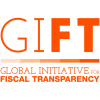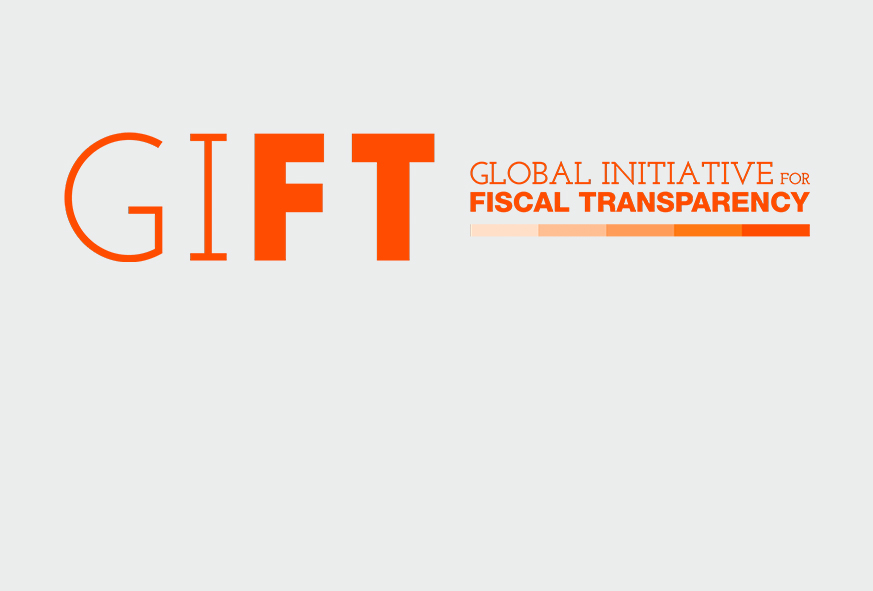#WebinarWednesday
In recent years, GIFT network members and partners have developed digital tools and technology that have allowed to significantly advance fiscal transparency, with a focus on making budget information meaningful and useful for citizens. To promote the sharing and discussion of such valuable experiences, GIFT is offering a program of monthly webinars around the areas of fiscal transparency portals, open fiscal data, strategies for communicating budget information, and initiatives to educate the public on budget matters.
International experience shows that to successfully engage citizens in the budget discussions and decisions, including overseeing its implementation and results governments and specialized civil society need to display a range of actions. This includes a proactive policy to disseminate budget information in formats that make sense for different types of users, a commitment to communicate this information and educate the public in terms of budget literacy, in a way that promotes the use of such information. The use of communication technology has greatly expanded the variety of ways in which government can reach out to the public, and the ways in which non-state actors can initiate or respond to opportunities to provide inputs.
The objective of this webinar program is to explore concrete experiences around the world in the use of digital tools to disclose and to effectively communicate budget information, with the goal of engaging citizens in the budget process. The tour includes a look at how ministries of finance have implemented successful budget open data policies, how they have built fiscal transparency portals, and their efforts to promote the use of data, including offering online courses about the budget.
 Wednesday, September 26, at 10am EST – Language: English
Wednesday, September 26, at 10am EST – Language: English
Fiscal transparency portals are instruments that can play a very important social role to facilitate the exercise of the right to know how public money is raised and spent. This webinar will take a close look at how is it that governments are designing portals with potential user interaction in mind, addressing both content generation and its structure. For that purpose, we will explore how interactions between government technicians, information access activists, and journalists who work regularly with budget data are taking place, with a look at the challenges and opportunities entailed.
In this webinar, participants will learn about the experiences of Brazil in revamping, their fiscal transparency portal, which now has a new interface, enhanced accessibility, responsiveness, search engine, navigation, and interactive tables, integrated pages and matrixial navigation. Additionally, the Portal includes new information on, for example, procurement and contracts, travelling expenses, CGU’s reports. The Portal is also now boosted with new tools, such as social media, collaboration, QR code, notifications, open data and APIs.
Besides, participants will hear from the experience of a unique collaboration between GIFT Stewards, the South African National Treasury and the Public Service Accountability Monitor, which is part of a coalition of civil society organizations (IMALI YETHU, our money ) working together to develop a portal that makes budget data accessible, user-friendly and empowering. The initiative also includes a communications and stakeholder strategy centered on widespread public participation and preference revelation. The project has sought to ensure ongoing engagement of CSOs to arrive to the ideal portal design.
Who:
- Otávio Neves, Secretariat of Transparency and Corruption Prevention, BRAZIL
- Carmela Zigoni, Institute for Socioeconomic Studies (INESC), BRAZIL
- Raquel Ferreira, National Treasury, SOUTH AFRICA
- Zukiswa Kota, Public Service Accountability Monitor, SOUTH AFRICA
Wednesday, November 7, at 10am EST – Language: English
Not rarely, budget authorities invest great efforts to publish fiscal information in compliance with international standards, only to find that the use of such data by the public is meager. Experience has shown that to foster the use of such data by the public, it is not enough to disclose it. Governments also need to make concerted efforts to communicate the budget data in innovative and creative ways that are relevant for potential users and in easily accessible language and formats. This session will explore how governments are working in collaboration with civil society to design and implement effective communication policies that consider the interests and characteristics of potential users, though the use of social media and other digital tools.
Who:
- Anna A. Belenchuk. Division Chief, Budget Analysis and Development. Department of Budget Methodology and Public Sector Financial Reporting. Ministry of Finance of The Russian Federation.
- Wawan Sunarjo. Head of Subdirectorate of Data and Technical Support. Ministry of Finance of Indonesia.
Presentations used during the webinar:
Wednesday, November 28, at 10am EST – Language: English
What is budget open data? How to build a budget open data? What for and how to target an open data policy? How do we know the open data policy is working? This webinar addressed the fundamental question when planning an open data policy, referencing to a new tutorial composed of ten 1-2 minutes videos that explain how to implement a fiscal transparency policy with open data as a fundamental pillar.
Who:
- Aura MartÃnez Oriol. Director of Budget Performance Information Analysis, Ministry of Finance and Public Credit of Mexico.
- Fabrizio Scrollini. Executive Director, Latin-American Initiative on Open Data from Uruguay (ILDA).
Presentation used during the webinar:
Friday, December 14, at 10am EST – Language: Spanish
Esta sesión exploró experiencias en el uso de datos presupuestarios por parte del público. ¿Cómo ha promovido el gobierno el uso? ¿Cómo ha maximizado y trabajado la sociedad civil para multiplicar el uso de los datos del presupuesto? ¿Cuáles son las experiencias de colaboración entre el gobierno y la sociedad civil en este campo? ¿Cuáles han sido los retos? ¿Cuáles son las oportunidades? ¿Qué evidencia tenemos de cómo el público está utilizando esta información?
Presentadores:
- Jeannette von Wolfersdorff. Directora Ejecutiva, Observatorio del Gasto Fiscal en Chile.
- Leonardo Buitrago. Dirección General de Presupuesto y Gasto Público, Ministerio de Hacienda y Crédito Público de Colombia.
Presentation used during the webinar:
Thursday, January 24, at 10am EST
This webinar highlighted how digital tools are being used to directly establish a dialogue between citizens and the state around the budget policy. What are the challenges, opportunities and lessons learned? What are the critical factors required to effectively incentivize participation? Who participate and how can different audiences be targeted?
Who:
- Isabel Xavier Canning. Municipality of Cascais, Portugal.
- Giorgi Chakvetadze, State Audit Office, Georgia.
Presentation used during the webinar:

Wenesday, January 27, at 10am EST
Understanding and using the budget and fiscal information to participate in public policy discussions or monitoring activities requires some level of capacity on the part of the public. This session highlighted experiences that are reaching out to a range of groups in society to build capacities and budget literacy, by offering online courses. Some of the addressed questions: What are the objectives of the online courses? How is the public being targeted? How are the courses designed? How are the courses promoted? What does the evidence tell in terms of the interest and results? and the lessons learned.
Who:
- Lorena Caballero Ministry of Finance and Public Credit, Mexico
- Juan Manuel Casanueva SocialTic
Presentation used during the webinar:






